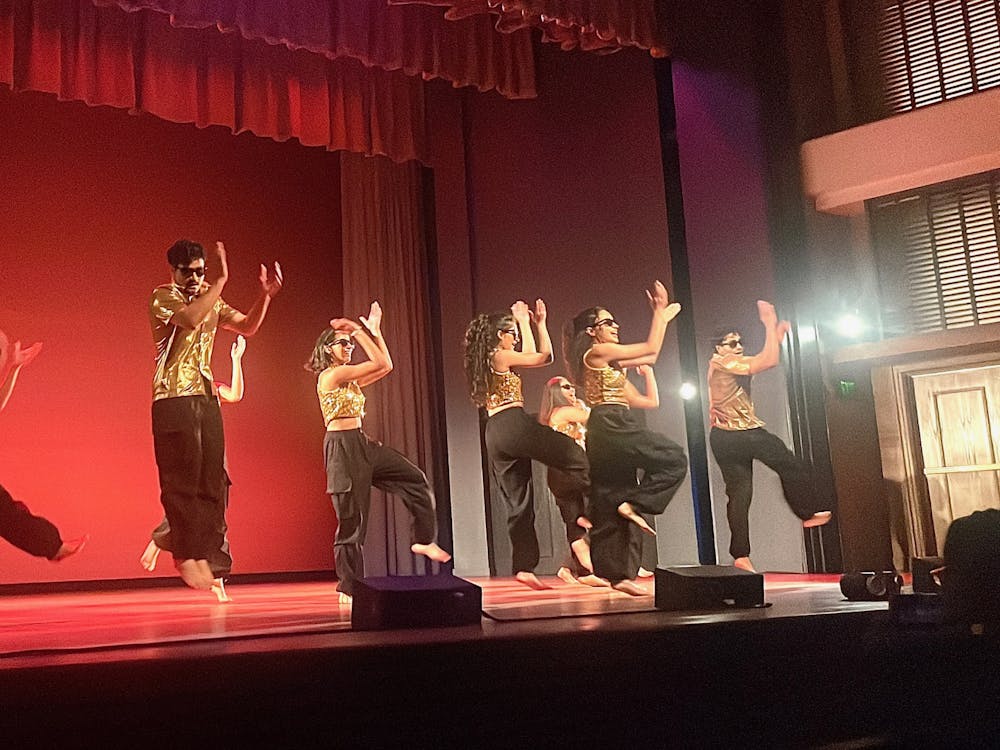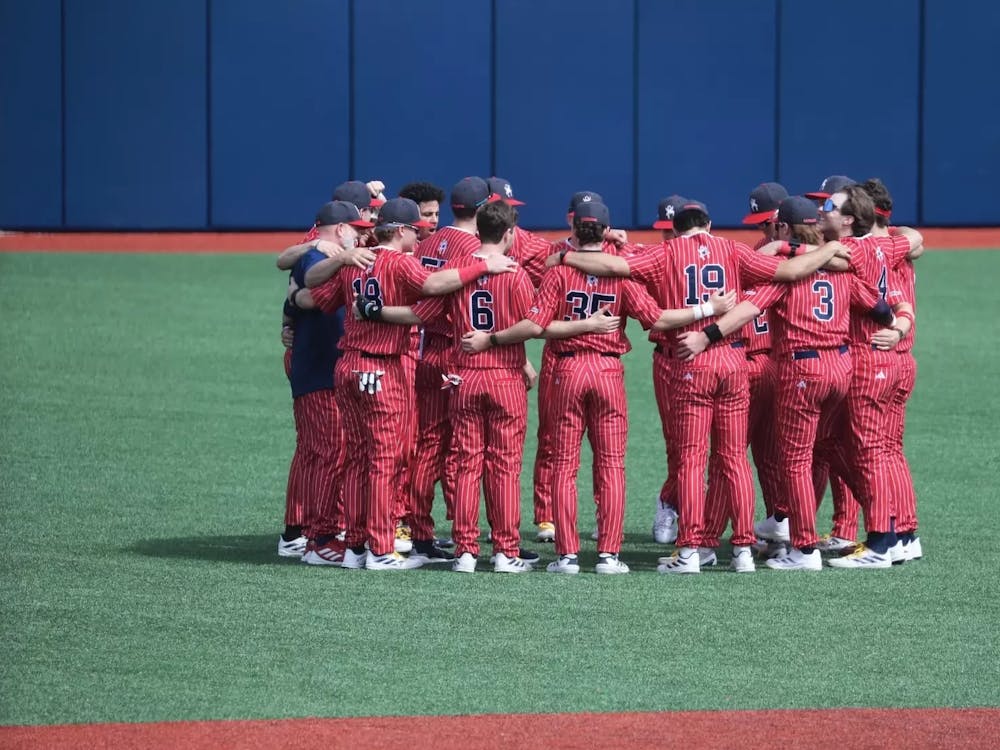Although the University of Richmond made a decision in the fall to decrease the number of Division I athletic teams it sponsors, it did not adopt a fixed ratio of student-athletes, and the actual percentage of student-athletes is likely to change from year to year, President Edward Ayers wrote in an email to The Collegian last week.
Soccer alumnus Scott Byrnes said that this statement contradicted what Ayers had said at the Save Our Sports forum held in September when soccer and track were being dropped and lacrosse was being added as a varsity sport.
During the September forum, Ayers and other participants mentioned several times that 13 percent of each incoming class was made up of student-athletes.
"The fact is that 13 as a percentage is a large number," Ayers said in September. "It's not a goal we're trying to get to; it's a number we find ourselves in. The 13 [percent] are why we cannot add another sport."
The university cannot increase the number of sports that it currently has if it wants to remain competitive more broadly for students with other talents, Ayers said at the forum in September.
However, the nature of cross country and track and field teams allowed the university to add more athletes to the athletic program than were taken away after the reconfiguration, despite the fact that the number of teams was lowered.
According to RichmondSpiders.com, the official website for Richmond athletics, the most recent soccer roster had 26 players; cross country and track and field combined had 21. With 12 runners allowed to remain for cross country competition, this removed 35 athletes from the Richmond Division I athletic program. With 64 added roster positions after the reconfiguration, this could lead to 29 more athletes coming to campus if individual athletes fill all of the freed roster positions.
"I cannot recall seeing anyone speak so fluidly outside both sides of their mouth as President Ayers," Byrnes said. "I hope that the University of Richmond faculty are not going to let him get away with it."
Athletic director Keith Gill said that the university committee did consider the size of the athletic program relative to peer institutions in its decision-making and that the ratio of student-athletes was one indicator of the relative size of the athletic program.
He also confirmed Ayers' statement that achieving a specific ratio of student athletes was not the objective of the decision. The decision was made to reduce the number of teams, while adding men's lacrosse, in order to strengthen the overall athletic program, Gill said.
Byrnes said that the ratio of athletes to students had been stated as a major issue at the fall forum because the university could not afford to increase the ratio. At a later date, Ayers told parents of former soccer players that it was the Richmond faculty who had taken a hard line on the athlete to student ratio and that he was intent on respecting their wishes, Byrnes said.
"The faculty members weren't worried about athletic slots," Byrnes said. "They were worried about the number of athletes."
Enjoy what you're reading?
Signup for our newsletter
The current numbers show that the reconfiguration would bring more athletes onto campus, which is against the rationale Ayers used in September about the faculty not wanting to increase the ratio of athletes to students, Byrnes said. A board of trustees member, who requested anonymity, reiterated this statement about faculty not wanting more athletes at school, he said.
Through personal contact with faculty who were upset by the decision and the results of an anonymous survey of 92 faculty members that showed 87 percent would endorse an alternative reconfiguration that kept soccer and track, while adding lacrosse and women's crew, Byrnes said he did not believe that the faculty were collectively behind the reconfiguration, despite Ayers' comment.
"They feel like they've been hoodwinked," Byrnes said. "A college environment is supposed to be open. If there is one industry or environment where fear of reprisals should not exist, it should be a university."
Contact staff writer Kylie McKenna at kylie.mckenna@richmond.edu
Support independent student media
You can make a tax-deductible donation by clicking the button below, which takes you to our secure PayPal account. The page is set up to receive contributions in whatever amount you designate. We look forward to using the money we raise to further our mission of providing honest and accurate information to students, faculty, staff, alumni and others in the general public.
Donate Now


